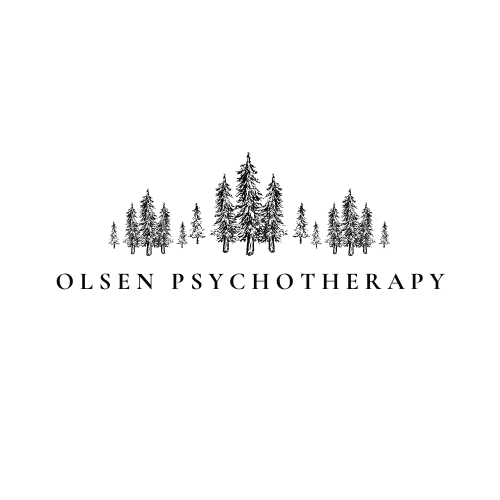About Olsen Psychotherapy
Christine Olsen, MSW, RSW
Master of Social Work with Specialization in Health & Mental Health - University of Toronto 2014
Honours Bachelor of Social Work - Lakehead University 2013
Registered Social Worker with the Ontario College of Social Workers & Social Service Workers (OCSWSSW)
I like working with people who are hesitant to go chat with a stranger because I’ve also been there. They’re the person who needs a push to actually go talk to someone. Because up until this point, they think they can handle it, or avoid it and hope it goes away. They tend to shut down and go somewhere else when a hard conversation happens, or it just feels hard to get close to them. It’s frustrating for others.
I am a wife and mother of 2 who understands the challenges of relationships when it’s not your strong suit. I have always been a calm, cool, and collected person. This seemed to always be a good thing in my eyes, until I realized that being “collected” also meant always keeping things contained. Too much of this is too much, and it makes relationship building really hard. So, I’m still calm and collected, just not out of fear. I still prefer quiet and time alone, but I express and be direct when it makes sense to me. I like helping people that find expressing emotions uncomfortable or sometimes they don’t even know what they’re feeling. It gets in the way of having closeness with others. And look, everybody has challenges in being in relationships in one way or another, so I like to help others get better at this skill and feel more content emotionally.
I’ve worked in different areas of the social work field, including health, mental health, addictions, and corrections since 2013. I’ve also had additional education in family and couples therapy. The experience in all of these areas has allowed me to see challenges through different perspectives. It has shown me how as humans we have common challenges that we all deal with differently. Some may turn to alcohol, while someone else may find excessive work. We’re all just trying to find contentment, a way to feel okay and be accepted.
Counselling & Therapy FAQs
-
First, we get the administrative stuff out of the way. If you haven’t been to counselling before, this means reviewing confidentiality and policies.
Then it's time to get to know some background information. I want to know the past, present, and future. What are your experiences and the impacts they’ve had? We cover all areas of your life, like family history, work, your day-to-day life, what brought you to therapy etc. We do this because it helps us better understand the concern you came to counselling for (it lets us see the bigger picture).
We work on getting clear on what your concern is and what the goals are.
After this, sessions will look like exploring your experiences with greater depth. I try to evoke better understanding by asking questions, and reflecting your experience in ways that increase your awareness of emotional patterns that affect thoughts, behaviours, and relationships.
-
I use an approach called Emotion Focused Therapy (EFT), created by Dr. Susan M. Johnson, that is guided by how emotions arise and affect our ability to operate our inner world and relationships. It is rooted in Attachment Theory (John Bowlby), which views our instinctual responses in relating to the self and others as a product of how we learned to bond to our early attachment figures (often a parent). Basically, we develop patterns of emotional responses and how to be in relationships.
Using this approach, I help you be aware of less helpful emotional reactions and use the information to more confidently cope with difficult feelings and navigate your relationships. You may also be learning to understand emotions with greater depth by evoking new ways of seeing them and their impacts. Importantly, my goal is to have you better able to move through emotions without shutting them out.
-
Sessions are typically weekly or bi-weekly.
The amount of sessions varies from person to person. Some may find relief from what brought them to therapy within a few sessions, while someone else may need support for an extended period.
Everyone goes at their own pace and has different goals they are wanting to accomplish. As well, for those wanting to do some deeper work, it can take time to build trust in order to explore those things.
Keep in mind therapy should not go on forever. I want you to get what you need and carry-on confidently.
-
Review the Frequently Asked Questions page to see if any of your questions can be answered there. Make sure to review Fees & Coverage and Available Appointment Times.
If after reading you think we are a good fit, click “Schedule Consult” at the top or bottom of the page to pick a time for a phone call (no phone tag needed). Send me an email if you cannot find a time that works christine@olsenpsychotherapy.com.
In the free 15-min consult call, you may explain what you’re looking to talk about, any goals you have, and get additional questions answered.
If we decide we are a fit, we will find an available time to meet.
We will meet on a secure online system specifically for therapy through video or in-person in a comfortable, private office space.


